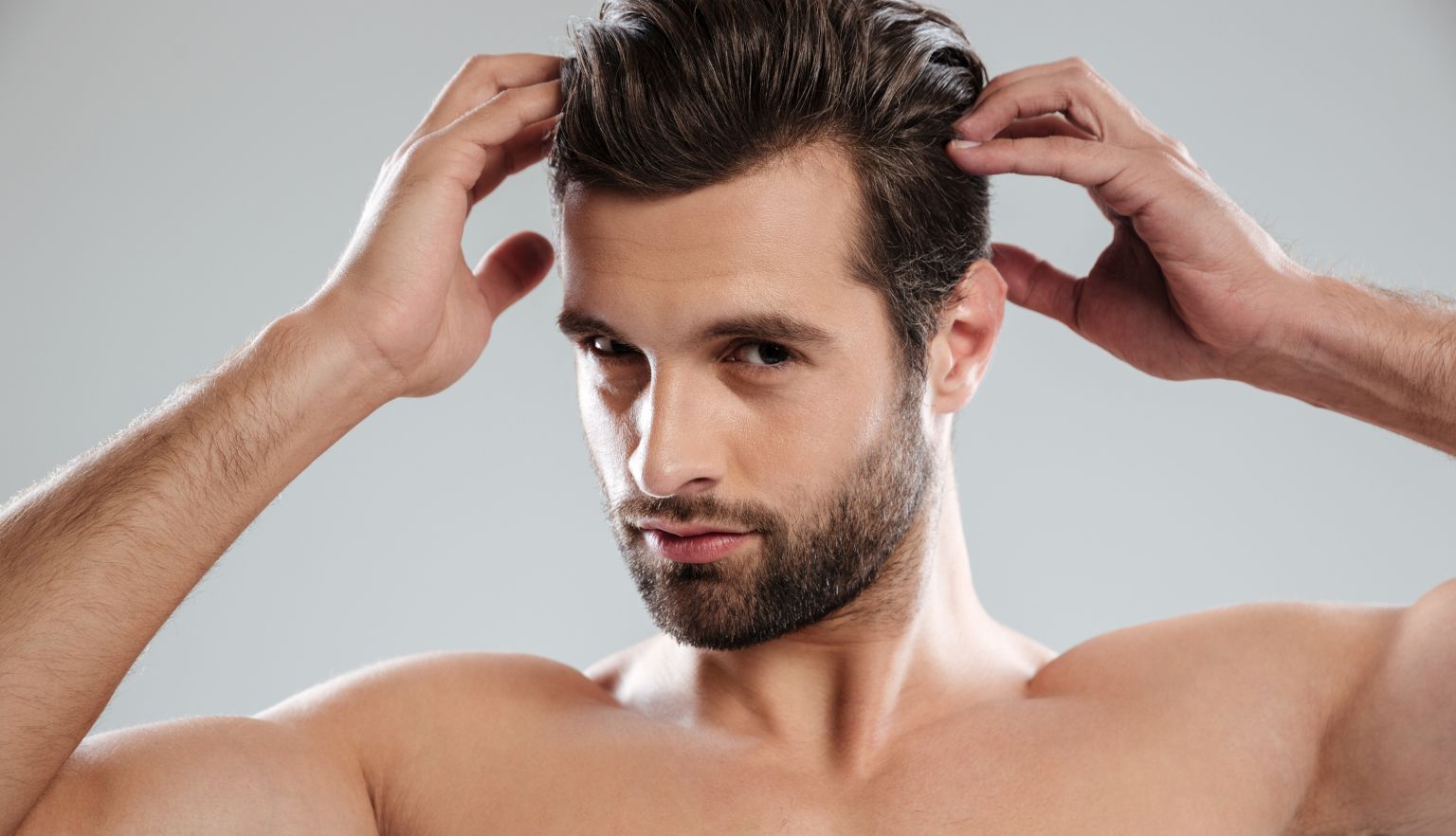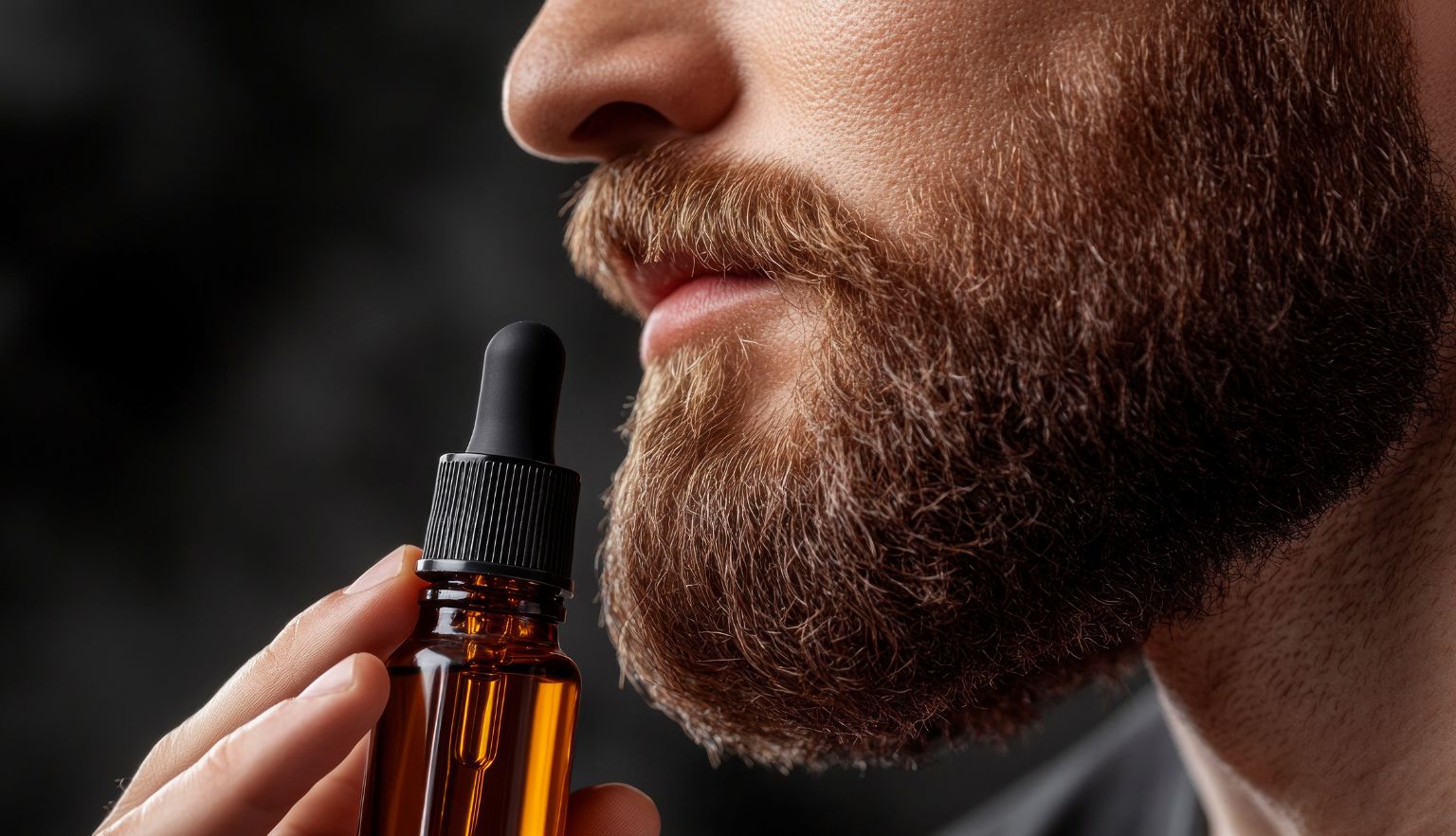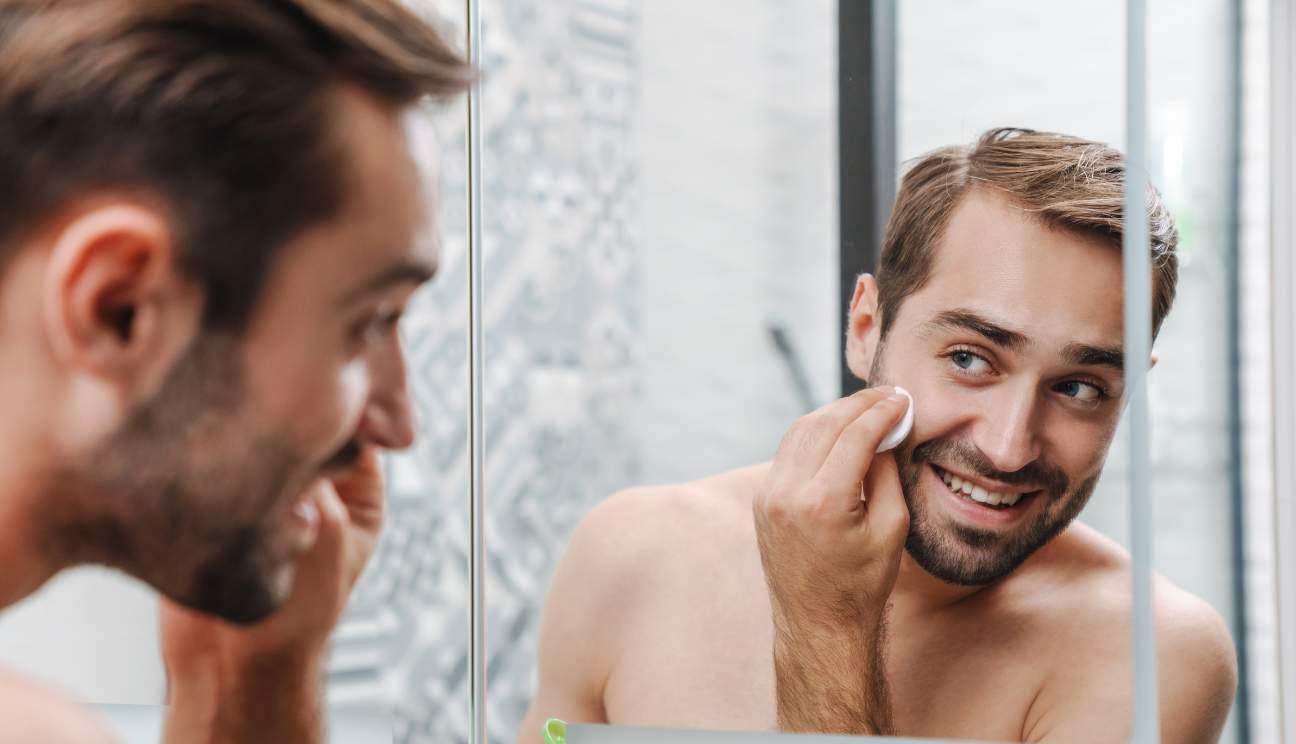10 Essential Oils For Beard Growth
Not all men prefer oiling, be it their scalp, beard or any other part of their body. That’s just personal preference (or a lack thereof). The human body uses some of the most advanced functioning that can’t be recreated by humans themselves. Mother Nature knew there’ll be dudes who’ll irresponsibly not groom themselves by oiling their scalp and/or facial hair to help it flourish. What did she do as a result? She decided to design the skin in such a way that it natural produces it’s own oil, namely ‘sebum’. Sebum is the body’s self-made moisturizer. It protects the delicate hair follicles on our body to stay strong and remain in place, while simultaneously nourishing it too! This is our body’s DIY hair care routine.
Nonetheless, sebum isn’t enough to single-handedly take care of everything. At some point, we have to chime in with some external oil products to help our skin and hair prosper. Here’s where our aforementioned essential oils come into play. They’ve been used traditionally for centuries and recently, scientific studies on them have taken place too. The results are positive and men who seek to grow a beard can be optimistic with good reason. Let me proceed by naming 10 of the most effective and efficient essential oils – in no particular order as such – for you to experiment with. So here we go!
Jojoba Oil:
Jojoba (officially pronounced as “ho-ho-buh”) oil is extracted from it’s namesake plant i.e. the Jojoba plant which is native to the south-western regions of the USA and it’s neighbouring nation, Mexico. However, Indians and Chinese people have cultivated this plant on their home soil for a long time as well.
It helps spread the naturally produced sebum throughout hair follicles in the applied area(s) and reduces grease as well. It moisturizes and hydrates the skin for approximately 24 hours.
Castor oil:
Scientifically known as ‘RicinusCommunis’, this plant originates from Egypt. The ancient Egyptians (or the mummy era Egyptians if you like) grew this plant for the Castor beans, which are the source of the much-coveted castor oil. It has been used for centuries due to it’s skin and hair improvement properties.
Castor oil prevents hair loss considerably. It improves blood circulation, which makes new beard follicles more productive. It has antifungal and antibacterial properties. It effectively treats split ends. It makes the appearance of one’s beard denser as the oil itself is dense and thick.
Coconut oil:
This one is very popular all over the world. One of the reasons for so being the case is it’s versatility. It has properties that suit grooming as well as edible products. It helps hydrate your skin and soften your hair, which makes beard management a much easier task than it usually is.
The fatty acids present in coconut oil eradicate bacteria, fungi, pathogens and viruses too; thus, it works as a potential anti-infectant too. It reduces eczema as well. Sunflower oil acts as a sunscreen as well as it blocks 20% of UV rays. Too much exposure to the sun’s harmful UV rays lead to skin cancer. Therefore, applying coconut oil helps decrease the chances of that happening in the future.
Sunflower oil:
This oil is prominently used while cooking. However, it’s largely unknown that Sunflower oil has benefits for your beard as well! It’s stacked with vitamin A, B, C and E. It contains lecithin and carotenoids too.
Sunflower oil helps the skin retain moisture. It also protects the skin, and as a result, the beard growing on it, from harmful UV rays when exposed to harsh sunny conditions. It prevents wrinkle formation and makes your skin smoother and more vibrant. It increases the rate of blood flow underneath the skin which is reflected in the form of glowing skin!
Avocado oil:
Avocados has stirred up a craze on social media in recent years, with people uploading posts and sharing statuses of them cherishing their avocado toasts. The green delight is undeniably pleasing not only to the eyes, but to the mouth as well. Okay, I’m drooling already!
Let me talk about avocado oil though, which is knowingly derived from the avocado fruit. Avocado oil effectively terminates the root cause of dandruff. It consists of vitamins A, D and E. It increases Collagen production, which makes your beard appear fuller.
Cedarwood oil:
This one’s most probably one of the first essential oils to be used by humanity. It is derived from the family of Cedar trees. Cedarwood’s soothing fragrance is a proven stress and tension reliever. The scent of Cedarwood oil produces the hormone ‘Serotonin’, which is a key stabiliser of our mood and mental well-being. It also promotes sleep and good digestion.
Cedarwood oil helps nourish dry scalps and the often untouched areas of the skin under one’s beard. It works as an antiseptic too! So when you inevitably get a cut or two every now and then while shaving, you already have a remedy at hand. The scent of this oil is an insect repellent too.
Peppermint oil:
It is one of the primary components of most if not all beard oils. Peppermint oil DOES NOT block DHT (Dihydrotestosterone), an androgen hormone that has polarising studies associated with it. While DHT was directly linked with male health issues (baldness being one of them!) as per studies in the past, further research went on to prove that it does have health benefits as well, especially related to beard growth.
Moreover, peppermint oil’s fragrant scent has a minty, refreshing and tingly feel to it. Scientists are coming up with evidence that oil extracted from the peppermint plant promotes hair growth.
Vetiver oil:
This oil is popularly utilised all over India. It’s commonly called “khus-khus” or just “khus” there. This oil is many things, namely an antiseptic, an anti-inflammatory, a tonic and even an aphrodisiac (oooooh). Vetiver oil is an extract of the Vetiveriazizanoides plant, which is grassy and emits an earthy scent. This oil acts as a coolant to the beard as well as the rest of the body.
Vetiver oil targets the circulatory and nervous system while it fights inflammation. This is beneficial for the body. It speeds up the healing process of scars and visible marks on one’s skin. It promotes the growth of new tissues in and around dead skin. It also prevents infections when used on open wounds. Last but not least, it decreases the drying of hair follicles.
Rice bran oil:
It is used a lot in Asian households for cooking purposes. Extracted from rice’s hull, it’s known for its mild flavour and not to forget, its high smoking point. Rice bran oil consists of Omega-6 and Omega-9 fatty acids, which soften and smoothen hair and skin. These fatty acids stimulate new hair growth too.
Rice bran oil has components and compounds that act as antioxidants and hair growth agents. The oil also contains inositol, a carbohydrate that gets rid of dandruff and split ends. The aforementioned Omega fatty acids prevent hair from prematurely greying.
Vitamin E:
Vitamin E can be found in an ample number of eatables. The intake of Vitamin Evia oral consumption i.e. in the form of food/drinks,helps with beard growth and nourishment to a certain extent, but not nearly as much as it does when it’s applied directly to your face, i.e. external application.
Vitamin E makes the beard soft, which makes it easier to be groomed. It increases blood flow and circulation; this leads to the stimulation of facial hair growth. Vitamin E can be found in the contents of a large number of essential oils. However, it’s sold separately too.
These were 10 of the most effective essential oils. You’ve got plenty of informative about each of them. Now that you know you have these brilliant options on the table, what are you waiting for? It’s time to start using them now! It’s not necessary to apply them individually; you can create a mixture of a few (or all) of these oils and find out if that works for you.



